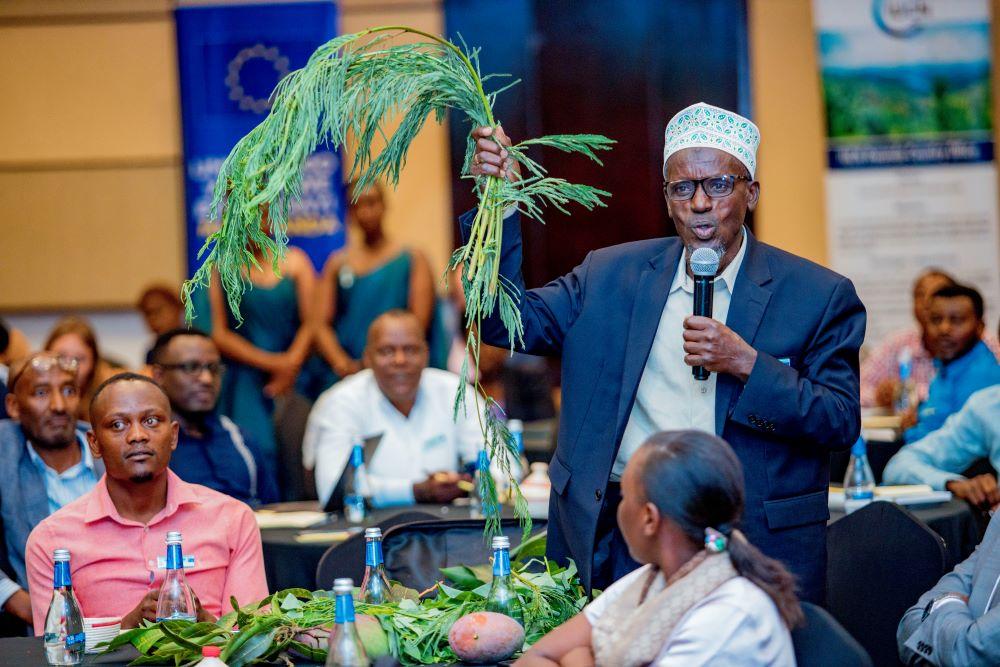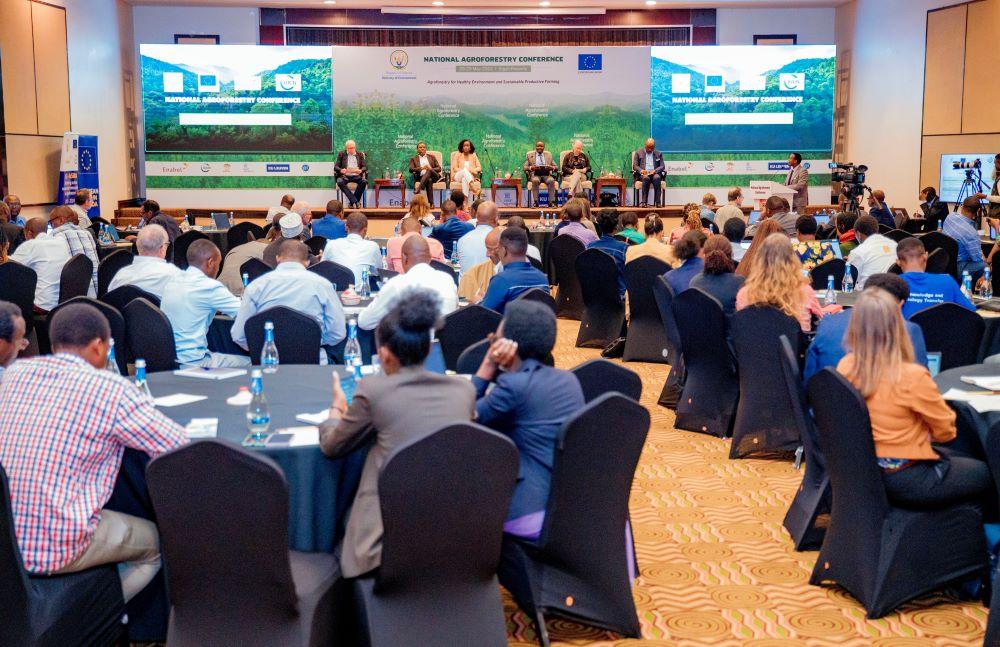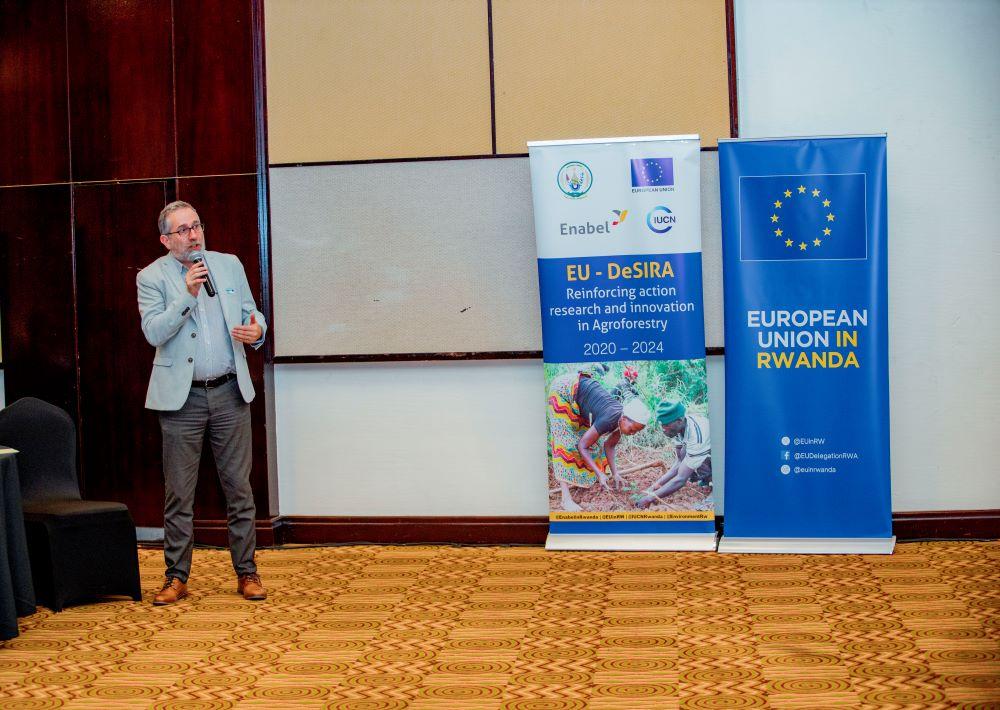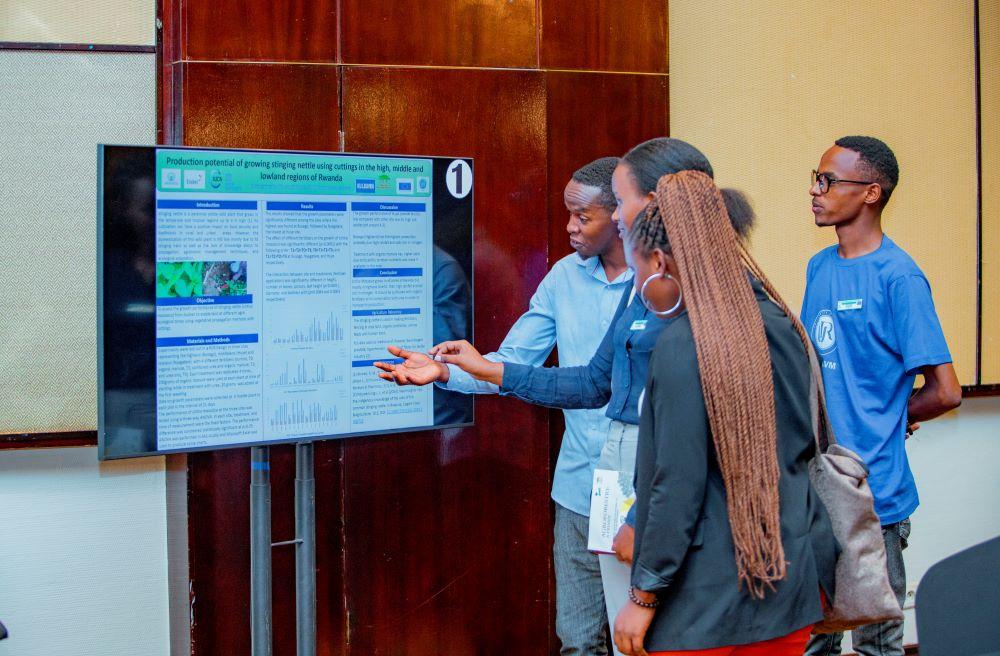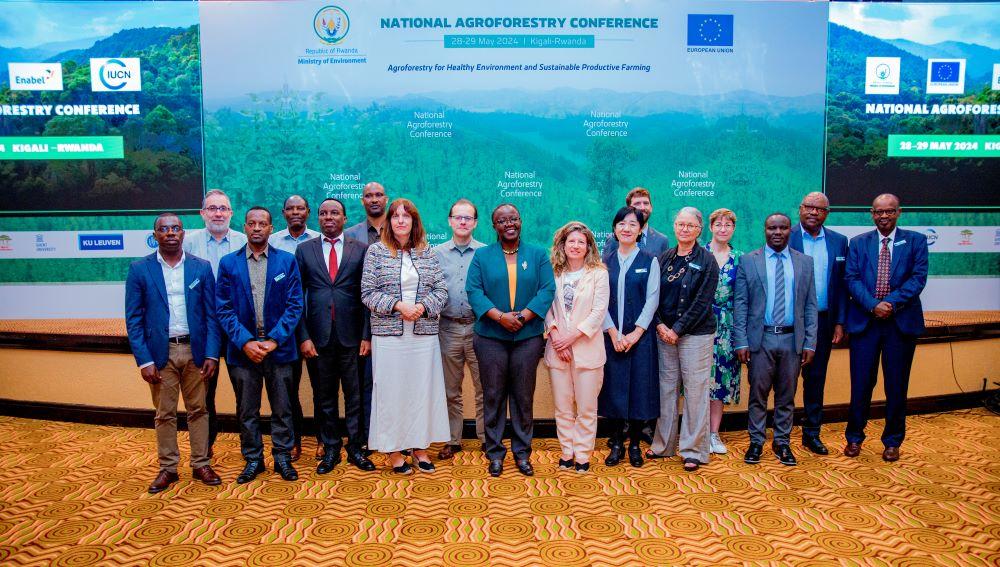In Kigali, second National Agroforestry Conference promotes sustainable farming practices
The Second National Agroforestry
Conference has been successfully held in Kigali from 28 to 29 May 2024. The
event emphasized the importance of adopting agroforestry practices among
Rwandan farmers and policymakers to enhance soil protection, increase crop
yields, diversify the sources of income, while restoring and sustaining the
biodiversity to build a better resilience to climate change.
Funded by the Smart Innovation
through Research in Agriculture (DeSIRA) project, the two-day conference was
organized by the Ministry of Environment in collaboration with the European
Union, International Union for Conservation of Nature (IUCN), the Belgian development
agency (Enabel), the International Centre for Research in Agroforestry (ICRAF),
the University of Rwanda (UR), KU Leuven and Ghent University.
Rwanda’s government policies,
including the National Strategy for Transformation (NST), the Green Growth
Strategy, and the Forestry and Agriculture Sector Strategic Plan, aim to
integrate agroforestry targets and promote practices that address the needs and
knowledge of farmers.
In her opening statement, the
Minister of Environment, Dr. Jeanne d’Arc Mujawamariya, highlighted Rwanda's
leadership in climate change initiatives. She noted that the adoption of
agroforestry practices "stands as a beacon of hope, offering practical
solutions that harmonize the needs of people and prosperity."
Representatives from the Ministry of
Agriculture and Animal Resources (MINAGRI/RAB) and the Ministry of Environment /
Rwanda Forestry Authority (MoE/RFA) expressed their commitment to jointly
enforce and coordinate agroforestry efforts in collaboration with key actors.
The conference provided an opportunity
to share key results from research and lessons learned from projects and
proposed key technical solutions and recommendations. Among them, the setting
of a national high-level agroforestry steering platform has been proposed, to
better coordinate actors ensuring synergy and complementarity, to harmonize
approaches and best practices, and to better involve and support farmers in the
intensive adoption of agroforestry on their lands.
170 individuals, including
representatives from central and local government, government-affiliated
entities, NGOs, farmers’ associations, research institutions, the private
sector, and various development partners participated in this conference.
Latest news from this project
No news
